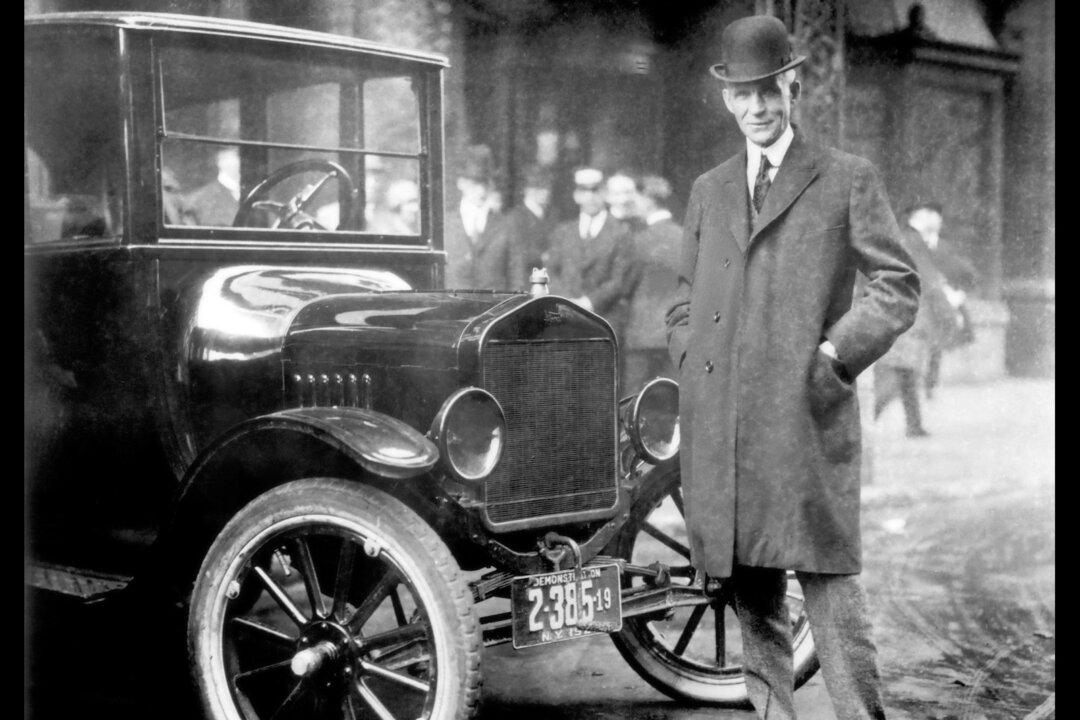He or she who lives his/her life in idleness, dawdling, or torpor are committing a grave sin, not to the celestial skies as what many would consider in this context, rather to their own self. How often do you meet such people? Their very existence only extant by the sheer virtue of chance in nature. Now, I am not saying that we are not all the products of chance, yet very few people actually choose to make something of themselves.
To say that we as humans do not enjoy to at times live in idleness is to deny an important part of human nature, yet some of us live by a compelling need to forever never “waste our times”. You might call those who invoke this virtue as workaholics, but it is more often than not that you find such people to be the most successful in society.
Those who put in the hours, reap the rewards. Those that do not, and expect success to fall out of the sky, are lazy.
The most salient examples of “anti-laziness” are America’s greatest entrepreneurs, whom unlike what most believe, worked long and hard hours to achieve success and wealth. These men did not waste their time in their youth, and perhaps more interestingly a great deal of them were not born into riches, but had amassed their wealth through their own sweat, and at times blood. They were entitled to their riches as when their peers slept, and wasted their time, they on the other hand worked.
Andrew Carnegie
The most famous rags-to-riches story to have ever defined the face of American capitalism is that of Carnegie, a Scottish immigrant who arrived in the U.S poor and destitute, and built one of the greatest steel empires in the world.
As a young man Carnegie began to work as a telegraph boy, and quickly moved up in the railway business, later on to create the grand Carnegie Steel Company. Now, all of this did not fall from the sky, but rather took laborious and painstaking years to achieve. He spent countless hours in his office devising ways to cut production costs in order to increase revenue, which made him one of the greatest American businessmen of all time. A big leap forward considering that when he arrive in the U.S he, his brother, and parents lived in a room.
Carnegie is also known as one of the most famous philanthropists in American history. So he worked for his wealth, and unlike the greedy robber-barons image you have in your head he spread it around.
Henry B. Plant
Formerly a deck-hand on a steamer ship between Hartford and New Haven, Plant was not born into success. The son of a farmer in the early 19th century, he really did not have as much opportunity as one would think in the early United States.
After long years of work for the Adams Express Company who owned the steamship that he worked on, the company transferred its services from boats to railways, from where over the course of a decade he moved his way up the company ladder to become the superintended of the Potomoc and Ohio territory. Soon the Civil War broke out which made business for some exceptionally difficult. Yet Plant was already planning.
After the destruction of infrastructure in the South, and the 1873 recession many had lost hope for returns on their investments. However Plant gathered his savings and had bough parts of old railway companies later to create one of the largest organizations in the U.S, spanning over 14 different railway companies, worth millions.
I wonder if he knew he would hit the jackpot in his 50s when he was scrubbing puke off the steamship deck.
Henry Ford
We all know Ford was an anti-semite, and possibly a misogynist, yet there is one thing we cannot deny: he revolutionised the way cars are made, and made a fortune doing it. However, do you know what his early years were like?
Ford was born into a modest immigrant family that moved from Ireland in order to farm in Michigan. He hated farm life so he left home and began work as a apprentice boy for a machinist in Detroit where he first got his start in the makings of factory life. In his early 20’s he began working for various companies, the most famous of which the Edison Illumination Company.
Decades of work had finally led him to establish the Ford Motor Company in 1901 at the age of 38, and as the cliché goes: the rest is history. But wait, where is the toil in his story? His first job paid only $2.50 a week, yet his board and room was around $3.50, so he spent his nights repairing watches and other mechanisms to make ends meet.
Samuel Walton
You might hate or love Walmart, or simply do not care, but few actually take the time to look at the story behind its founder. Samuel Walton managed to build one of the largest retail empires from nothing but a few hard earned loans from his father-in-law.
He got his start in business at the age of 27 after he returned from service in the Second World War, only to start various small chains of successful retail stores, where he worked incessantly to raise the needed capital to begin the crown jewel of retail: Walmart. The first Wal-mart store which opened in 1965, would be the first which took the nation by storm in the 80s and 90s.
How did he make his money, pioneer a new age of retailing, and build an empire that still stands today? Work.
Henry Miller
Imagine arriving in a country with only 6 dollars in your pocket, only after years of painstaking work to gain the title of “the cattle king of California”. Henry Miller, born Heinrich Kreiser, immigrated from the Kingdom of Württemberg to San Fransisco in 1850, not knowing what to expect, the only thing that he knew is that he wanted to make money.
Miller spent a lot of time working as a till-boy in various business until he amassed enough capital to start his own butcher shop. He bought cattle, and as a result of favourable market fluctuations he began to have big turnovers early on. But don’t be too quick to form an image of a highly successful businessman in a butcher apron.
He actually spent most of his time on horseback throughout California always looking for the best cattle, the best deals, and most importantly always making connections. By the time he died he owned 1.3 million acres of land. His estate was around 40 million dollars( around 800 million in today’s money). Talk about a business model.
But what can you learn from all these men? Besides that you have achieved nothing with your life when compared to them? You can at least understand that the work ethic that they employed is what got them so far. The simple issue of laziness is that it leads to failure, while its exact opposite, more often than not, leads to success. So keep on scrubbing the puke off the deck, and soldier on.




